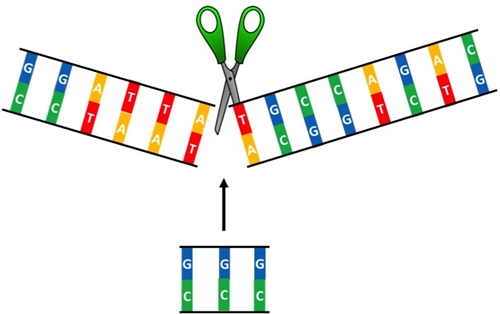15 February 2017. A biotechnology industry association in the U.S. says its members are not ready to support recommendations in a new report permitting future clinical studies of genome editing for inheritable disease-causing traits. James Greenwood, president of the Biotechnology Innovation Organization, or BIO, announced the group’s position after release of the report — Human Genome Editing: Science, Ethics, and Governance — by a committee of National Academy of Sciences and National Academy of Medicine on 14 February.
The report addresses quickly emerging technologies for removing or replacing disease-causing genetic variations passed on from parents to children in their DNA, known as germline or reproductive cell editing. Among the leading techniques is clustered, regularly interspaced short palindromic repeats or Crispr, a technology based on bacterial defense mechanisms that use RNA to identify and monitor precise locations in DNA. The actual editing of genomes with Crispr uses an enzyme known as Crispr-associated protein 9 or Cas9. With this approach to Crispr, RNA molecules guide Cas9 proteins to specific genes needing repair, making it possible to address root causes of many diseases.
Rapid advances in Crispr-Cas9 research led to an international summit in December 2015 on human gene editing and qualified support for clinical trials of genome editing for somatic, or non-inheritable conditions and basic research, but drawing the line at germline cell editing. The National Academies committee now is recommending clinical trials of germline cell editing with Crispr-Cas9, only for disease-causing conditions and under a set of specified conditions.
The committee’s report notes advances in the precision of Crispr-Cas9 genome editing as one of the reasons for revisiting the topic. As reported in Science & Enterprise, techniques devised in the lab of Broad Institute geneticist Feng Zhang reduced erroneous off-target edits that sometimes occur in Crispr-Cas9.
BIO’s president James Greenwood says current regulations already restrict germline cell editing, referring to legislation passed in 2015 that prevents Food and Drug Administration from reviewing “research in which a human embryo is intentionally created or modified to include a heritable genetic modification.” Greenwood continues that “BIO shares the view reached by other leaders in the scientific and regulatory community that clinical applications of genome editing in somatic cells can be appropriately evaluated within existing, well-established regulatory frameworks for gene therapy.”
And Greenwood adds, “Our members remain focused on clinical applications of genome editing in somatic cells (not inheritable cells).”
The National Academies committee made its recommendations in the event current regulatory restrictions are removed in the U.S. or elsewhere. In that case, clinical trials of genome editing to prevent inheritable disease traits could proceed, but only where no alternatives are available, genes are convincingly demonstrated to be causing the condition or a predisposition for it, credible preclinical or other clinical data on risks and benefits are available, ongoing and rigorous oversight is provided, long-term multi-generational follow-up is included, and health and societal benefits and risks are continually reassessed with ongoing public input.
The committee stopped this time at germline cell editing for enhancement of traits rather than disease prevention. “Human genome editing holds tremendous promise for understanding, treating, or preventing many devastating genetic diseases, and for improving treatment of many other illnesses,” notes Alta Charo, University of Wisconsin bioethics and law professor that chaired the committee. “However, genome editing to enhance traits or abilities beyond ordinary health raises concerns about whether the benefits can outweigh the risks, and about fairness if available only to some people.”
Read more:
- Electronic Gene Editing Corrects Inherited Blood Disorder
- Gene Editing Negates Sickle Cell to Create Healthy Blood
- Gene-Editing Therapy Advances for Rare Immune Disorder
- Eye Disease Gene Defect Repaired with Crispr
- Gene Editing Licensed for Inherited Disease Treatments
* * *


 RSS - Posts
RSS - Posts
[…] Biotech Group Withholds Support for Germline Trial Report […]